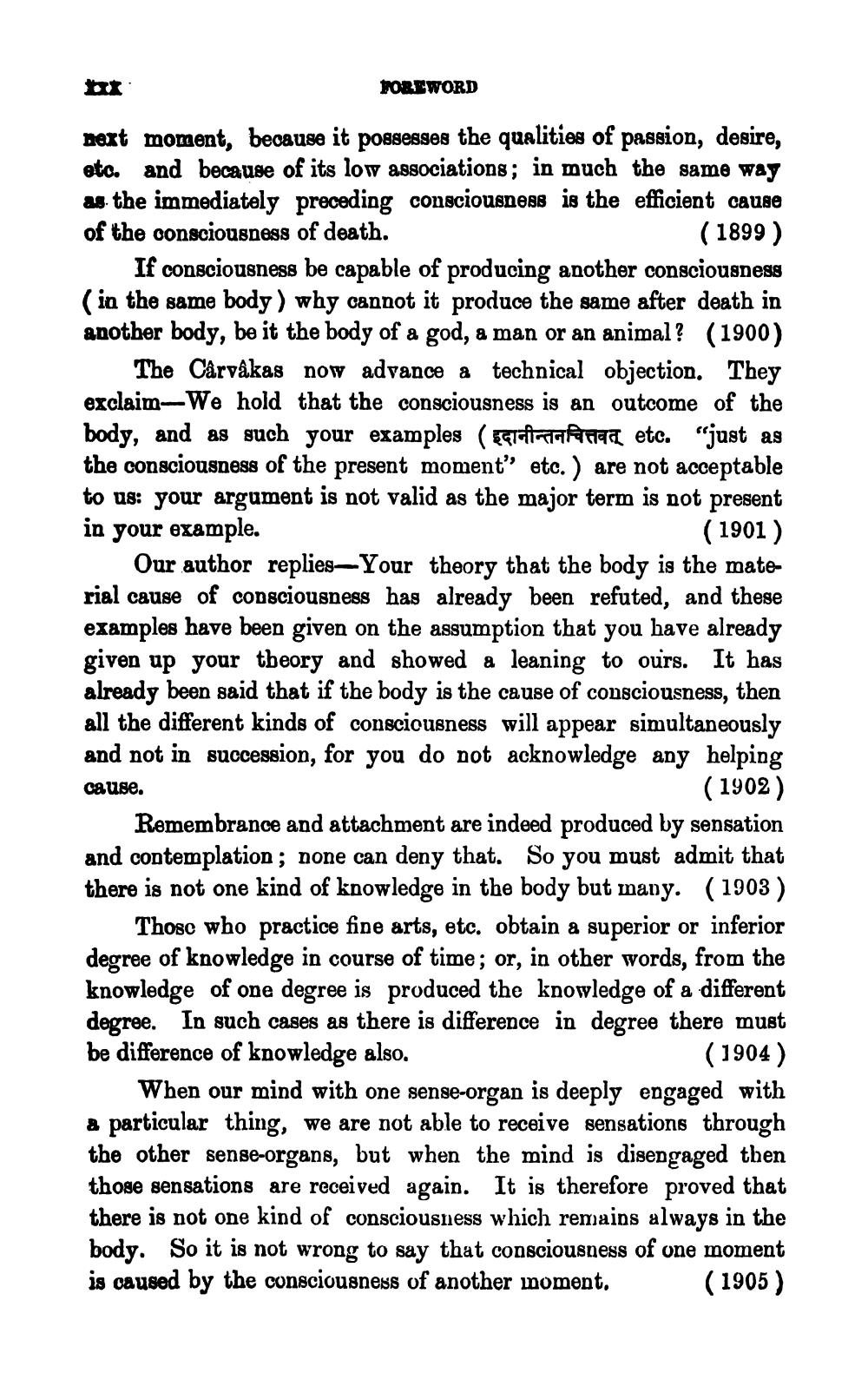________________
MOREWORD
next moment, because it possesses the qualities of passion, desire, etc. and because of its low associations; in much the same way as the immediately preceding consciousness is the efficient cause of the consciousness of death.
(1899) If consciousness be capable of producing another consciousness (in the same body) why cannot it produce the same after death in another body, be it the body of a god, a man or an animal? (1900)
The Cårvåkas now advance a technical objection. They exclaim-We hold that the consciousness is an outcome of the body, and as such your examples (egiatapaanaa etc. "just as the consciousness of the present moment” etc.) are not acceptable to us your argument is not valid as the major term is not present in your example.
(1901) Our author replies—Your theory that the body is the material cause of consciousness has already been refuted, and these examples have been given on the assumption that you have already given up your theory and showed a leaning to ours. It has already been said that if the body is the cause of consciousness, then all the different kinds of consciousness will appear simultaneously and not in succession, for you do not acknowledge any helping cause.
(1902) Remembrance and attachment are indeed produced by sensation and contemplation; none can deny that. So you must admit that there is not one kind of knowledge in the body but many. (1903)
Thosc who practice fine arts, etc. obtain a superior or inferior degree of knowledge in course of time; or, in other words, from the knowledge of one degree is produced the knowledge of a different degree. In such cases as there is difference in degree there must be difference of knowledge also.
(1904) When our mind with one sense-organ is deeply engaged with a particular thing, we are not able to receive sensations through the other sense-organs, but when the mind is disengaged then those sensations are received again. It is therefore proved that there is not one kind of consciousness which remains always in the body. So it is not wrong to say that consciousness of one moment is caused by the consciousness of another moment.
(1905)




